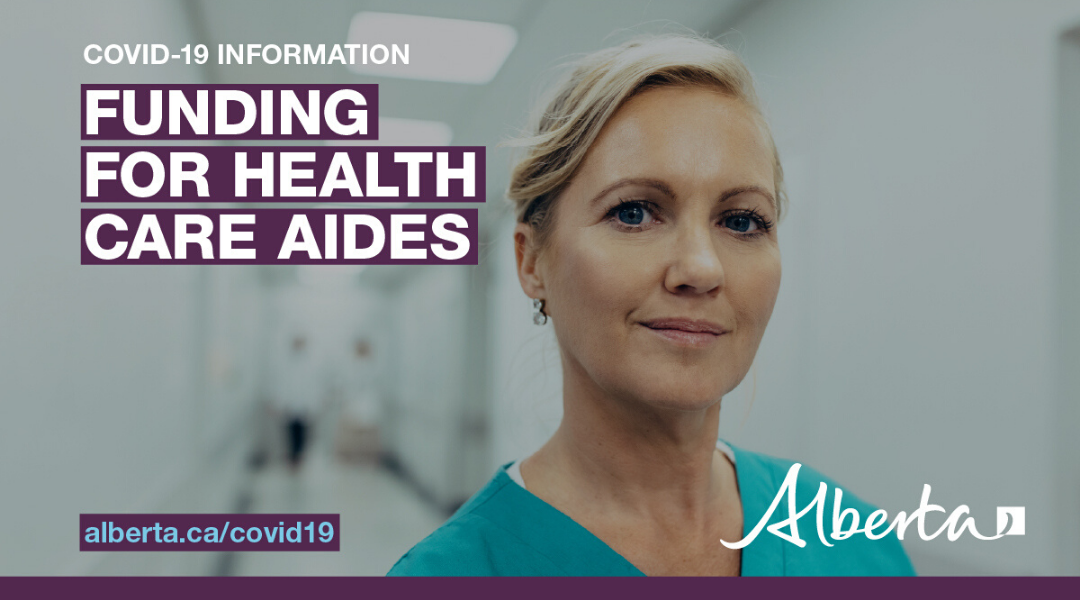New funding will increase staffing of health-care aides to alleviate pressures in contracted continuing care facilities.

Supports include additional funding to allow for:
- Increased health-care aide staffing levels.
- A wage top-up of an additional $2 per hour for health-care aides.
- Up to 1,000 paid student practicum positions to fast-track certification and get more staff into our continuing care facilities.
In addition, $24.5 million is being advanced to operators to help address immediate cost pressures due to COVID-19.
“Health-care aides are integral to the well-being of residents – and they play a critical role across the health-care system. We cannot overlook their contribution, and we must not lose sight of how the pressures they face can directly impact the functioning of entire facilities. We are confident that these measures will make a difference not only to health-care aides, but to the residents of these facilities who deserve quality and compassionate care.”Tyler Shandro, Minister of Health
Continuing care facilities have been disproportionately affected by the COVID-19 pandemic, which is why strong restrictions are in place to address the spread of the virus. These restrictions are necessary to help protect lives, but they also place financial and emotional burdens on staff, residents and operators.
Increased funding will help facilities hire about 1,000 additional full-time staff so they can adequately prevent infections and respond to outbreaks. The addition of 1,000 practicum students will also help deal with staffing shortages across the system. A wage supplement will help compensate health-care aides at contracted sites for the extra work necessary during this pandemic. It will also help alleviate the financial burden for those who normally work at several sites, but are now restricted to one site.
These new measures are estimated to cost an additional $7.3 million per month and are specific support for the pandemic period.
Quick facts
- The most important measure Albertans can take to prevent respiratory illnesses, including COVID-19, is to practise good hygiene.
- This includes cleaning your hands regularly for at least 20 seconds, avoiding touching your face, coughing or sneezing into your elbow or sleeve, and disposing of tissues appropriately.
- Anyone who has health concerns or is experiencing symptoms of COVID-19 should complete an online COVID-19 self-assessment.
- For recommendations on protecting yourself and your community, visit alberta.ca/COVID19.


